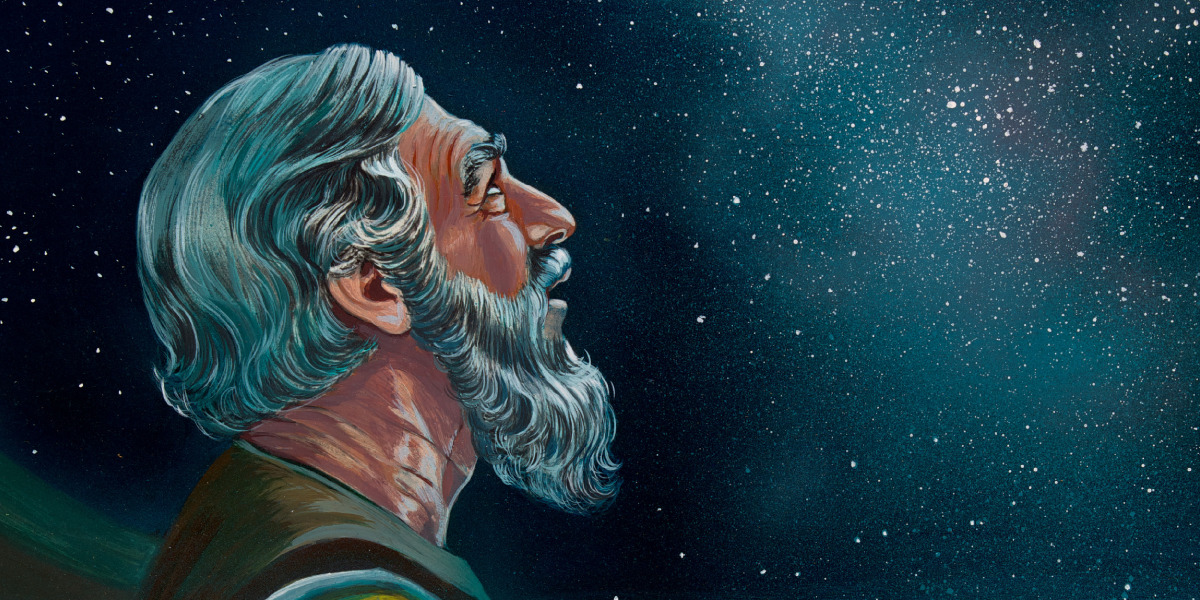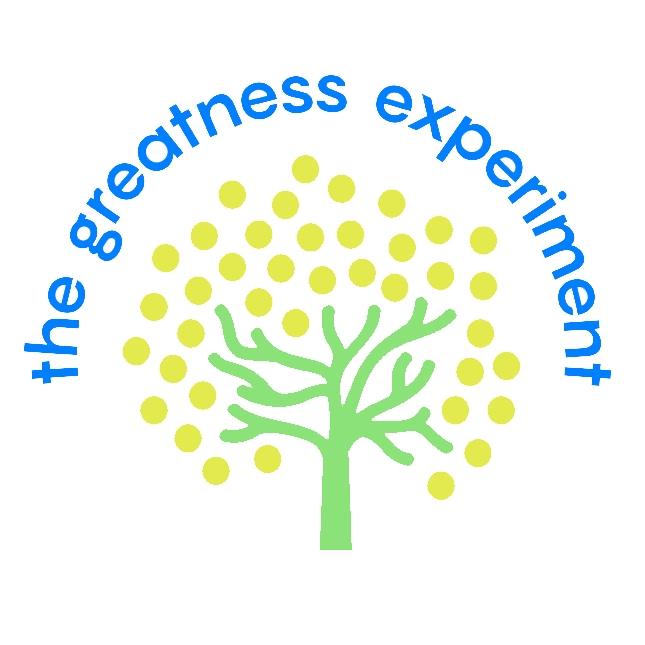
Before introducing us to Abraham, Moses begins by telling us about Abraham’s forefathers, their first sons, and their ages when they had them. He starts with Shem, Noah’s son, who was a hundred years old when he had his son after the flood. After that, those who followed had their first son at the average age of 31. Abraham was 75 years old and childless when he first received from God the promise of fathering a “great nation” (Gen. 12:1). God reminded Abraham of this promise an additional six times in one form or another to confirm his faith (Gen 13:16, 15:1-6, 15:12-18, 17:1-8. 15-17, 18:9-14, 18:17-20).
At one point, Abraham wondered how God would fulfill His word. He said, “Lord God, what wilt thou give me, seeing I go childless” and “to me thou hast given no seed” (Gen. 15:2-3). The Lord gave him a place to turn to remind him when he doubted—
Look now toward heaven, and tell the stars, if thou be able to number them,…so shall thy seed be. (v.5)
Moses then tells us that “he believed in the Lord” and “he counted it to him for righteousness.” (v.6) The Apostle Paul taught us that Abraham “being fully persuaded that, what [God] had promised, he was able also to perform…against hope believed in hope” (Rom 4:18-21). God rewarded his hope. Like Shem, a hundred-year-old Abraham had a son whom the Lord named Isaac.
No one is immune from having doubts. We must remember that doubt is not a sin. It can lead to sin if we choose to disregard, disobey, and disavow our Heavenly Father and Savior. With that said, They are always happily waiting for our return.
Jesus, God’s sinless and beloved Son, during His incomprehensible suffering on the cross because of His Atonement on our behalf, spoke out in wonderment, “My God, my God, why hast thou forsaken me?” (Matt. 15:34). In the darkest moment in human history, how could the Father of His Only Begotten Son leave Him to suffer the final moments of the Atonement alone? Of this experience, Elder Jeffrey R Holland of the Quorum of the Twelve once said—
I am of the personal opinion, that God was never, ever, ever closer to His Only Begotten Son than in that moment. However close that was, the Father was nowhere but at His side. The Savior had to feel alone because the whole nature of the Atonement is that He had to carry the sins and sorrows and the sufferings and the sicknesses on that one little set of shoulders.
He had to feel that he was alone because He had to know how you feel when you feel alone. There are lots of times when we feel alone, there are a lot of times when we feel we’re abandoned, there are a lot of times when we feel that the heavens are sealed. Well, He had to feel that too and so He did. (Elder Holland: God Was Never Closer to His Son Then He Was in Gethsemane)
For a small moment, even the Son of God doubted. Fortunately for us, this doubt didn’t lead Him to forsake His mission or to reject His Father.
We are surrounded by things that we read, hear, and see that have the potential of breaking the shelf that holds up our faith in God’s promises. When we learn of the warts in God’s people, prophets, teachings, and history that can be found from the fall of Adam to this day it is unsurprising to Him that our faith begins to shake. Is it any wonder that Moroni invites readers of what would eventually become the Book of Mormon to—
Remember how merciful the Lord hath been unto the children of men, from the creation of Adam even down until the time that ye shall receive these things, and ponder it in your hearts.
And when ye shall receive these things, I would exhort you that ye would ask God, the Eternal Father, in the name of Christ, if these things are not true (Moro. 10:3-4).
In our lives, we will doubt. It is expected by God that we will experience this. However, if our doubts draw us to the world and away from a loving Father in Heaven then we can definitively know that we are going in the wrong direction. Our Heavenly Father expects us to have questions about what happens to us and around us. His hope is that our search will bring us to Him. As we do, we come to know and love Him.
Where we go and what we do determine where we will be. If one wants to be a medical doctor, going to law or business school, though ambitious, will probably not make that happen. If one wants to be physically fit, frequently binging on fast food and sugary drinks, though tasty, will probably not make that happen. If one wants to find the love of one’s life, cycling through many people without ever focusing on one, though fun, will probably not make that happen. Too often, unfortunately, our doubts don’t bring us to the Fount of every blessing who will nurture our faith. Instead, we go to places whose purpose is to destroy it. If we don’t intentionally course correct, our doubts will displace our faith in God and dim our memories of His mercies.
I find it fascinating that frequently many good people who have permitted this to happen to them, often believe that not believing frees them. Yes, it does free them to not attend Church, to not serve others through callings, and to not keep commandments they disagree with. Yet, that freedom, also releases them from receiving the divine peace, love, help, and healing, that a loving God wants to provide them in all parts of their lives.
God fully understands that it is not easy to always have faith in Him, His Son, His servants, and His promises. He knows that mixing perfection and imperfection is messy. He does not condemn us when we are confused about what to believe. Because of His Son’s suffering and intercession for us, He entices and invites us through His servants, His scriptures, and the power of the Holy Ghost to draw near to Him. As we do, He promises us that He will hear and answer us in our darkest moments that include our toughest trials and yes even and especially after our worst sins. He understands that we are in a fallen world where it is easy to fall ourselves. When we do, He stands with outstretched hands all day long to pick us up, to draw us to Him, and to encircle us in the arms of His love (2 Ne. 1:15).
Though, like you and me, he was far from perfect, one of the Prophet Joseph Smith’s many endearing and redeeming qualities in the eyes of His Heavenly Father is that he was humble enough to turn to Him. Whether it was to receive forgiveness from sin, to bless someone in need, to obtain an understanding of what to do, or to replace doubt with faith, God always answered him, often in unexpected ways. Joseph’s First Vision was God’s gift for going to Him with his doubts.
Our Heavenly Father hears and answers us as He heard and answered Abraham, Jesus, and Joseph. By always remembering to seek Him through prayer, study, and service in the name of His Son, we obtain the fulfillment of our Heavenly Father’s promises. He will be with us to the end of our days in this life in all that we do and eternally in the life to come because of His Beloved Son. Like Abraham, when we doubt, let us “look now toward heaven.” God will displace our doubts with faith, even when we don’t understand everything. We will come to know that not only does God live, but also that He loves us, that He is there for us, and that He wants good for us. Jesus taught that knowing “this is life eternal” (John 17:3).
